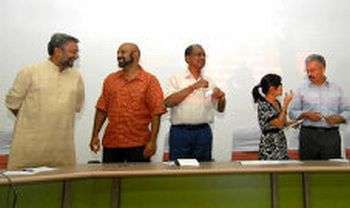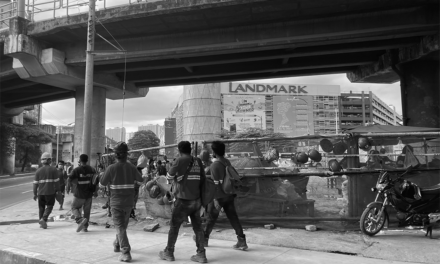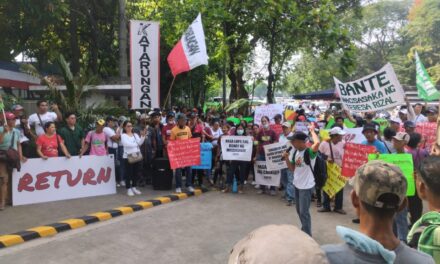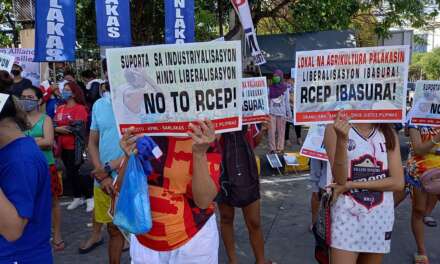By Jenina Joy Chavez
This paper was delivered by Ms Chavez during the PSAARC Seminar, “Envisioning New South Asia: People’s Perspectives,” in Dhaka, Bangladesh; January 18-19, 2011.
Good morning. It is an honor to participate in the People’s SAARC Seminar, and to be back in Bangladesh after almost 12 years. It is also a privilege to be given the opportunity to observe the continuing process you are undertaking, in refining a people’s vision for a new South Asia.
This morning, I would like to contribute some thoughts on why it is high time regionalism is seriously considered, and how the people should claim and redefine it.
Asia Update
For more than three years now, the world has been nursing a financial crisis that ate at the backbone of the global economy. As a result, world output slowed down in 2007 and 2008, and contracted by 0.8% in 2009, with global trade in goods and services contracting by 12.3% in the same year. (IMF, WEO Update, January 26, 2010) This meant the contraction of incomes and employment, and consequently of living standards across the world.
The global economic contraction did not hit the Asia region as much, and in the case of East Asia, not in the same depth as the 1997 financial crisis affected the region (which did not affect South Asia at all). Last year, global output was projected to grow by 3.9%, but growth estimates for developing Asia was more than double at 8.4%. The estimate for Japan was a slower 1.7%, but this was after several years of negative growth. (IMF, Ibid.) Asia still hosts one of the most robust productive capacities worldwide – that is, the real economy remains the most significant feature of Asia’s growth and development. This accounts for Asia’s relative resilience in this crisis.
However, while Asia has avoided the shock that hit North America and Western Europe, the slowdown in these regions means that Asia will have to look for new ways to restart its growth. And that is why, by 2010, many Asian free trade agreements have come on stream, either partly or fully: the ASEAN-China FTA, the ASEAN-Korea FTA, the ASEAN-India FTA, and the ASEAN-Japan Comprehensive Economic Partnership Agreement. The same arguments raised about global free trade hold true in the case of Asian FTAs. But an added dimension to these agreements is that they are negotiated and signed between countries or groups of countries where democratic practices like consultation, freedom of information, and people’s participation are weak, or non-existent.
When we talk of Asia, we must remember that we are also talking about huge disparities within and among countries, of varying levels of development and variable economic structures. For instance, unemployment could be as good as only 1.4% in Thailand and Bhutan; and could be as bad as 9.8% in Indonesia and 14.4% in the Maldives. ASEAN has sharper income gaps than SAARC – the highest per capita income (Brunei US$49,370 PPP) is 66 times the lowest (Myanmar US$750 PPP); whereas in SAARC it is only 6 times (Afghanistan US$881 PPP versus the Maldives US$5,027 PPP). However, SAARC has higher incidence of and deeper poverty, as well as ranks lower in terms of human development.
The region also hosts many countries most vulnerable to climate change. It is common to hear these days how the Maldives, for instance, is at risk of being totally submerged in water; or how the Philippines despite contributing very little to carbon emission ranks high in vulnerability. Huge populations, water scarcity and climate change also affect capacities of countries to produce its own food. India, for instance, has experienced crop failures for eight consecutive years, miring people deeper in debt, and resulting in around 200,000 farmer suicides since 1997.
South and Southeast Asia are also cited for the high incidence of what even the World Bank recognizes as global land garb. Yet, the actions of governments give us reason to worry. In 2009, it was reported that the Pakistani Government offered more than 400,000 hectares of HYPERLINK “http://www.reuters.com/article/pressRelease%20idUS176761+27-Aug-2009+BW20090827” farmland for sale or lease to foreign investors. The Philippines also signed 19 memoranda of agreement with China for the use of one million hectares of farmland for food production for Chinese consumption.
In 2010, warnings were issued about a potential water war between India and Pakistan, adding to existing conflict points between the two countries. And as water scarcity becomes an increasing concern for many, more such warnings may be heard in the years to come.
These snippets of information are significant because they show the common concerns that plague countries in the region, on the one hand; and the inadequacy of their actions. They also highlight the need for and the potential of regionalism as a response to address various problems that have already reached crisis proportions.
Why Regionalism?
Questions have been raised about the ability of global forces to deliver global welfare. Global mechanisms have been set up to address the concerns arising out of globalization, but they are deemed inadequate or unable to respond to all of the issues all of the time. There is consensus that the global economy needs a stronger social dimension (e.g. the work of ILO and UNDP), but the lack of democracy in global institutions frustrates the social aspects of globalization. Thus, the multilateral system suffers from a twin weakness— its tendency to significantly reduce developing countries’ policy space and its lack of a development dimension. (Helleiner, 2002)
The need for more democracy highlights the importance of the region or the regional. It is an arena where inclusion / inclusiveness can be furthered; and new centers of influence are developed (Bello 2002). Regions also make possible new South-South alliances where alternative ideas to challenge dominant North-South power relations can be enhanced (Keet 2006). Moreover, regionalism offers the potential for policy autonomy in the South, through “pooling of bargaining power and negotiating skills among developing countries” (Girvan, 2005).
To reiterate, regionalism is desirable for several reasons: (1) the commonality of regional experiences and problems; (2) the inadequacy of national action; (3) the failure of and the lack of democracy in global institutions; (4) the potential for bigger policy space; and (5) the need to develop new centers of influence.
However, even as regionalism can expand the possibilities for and bring more stability and prosperity into a region, it is important to note the behavior and impact of intra-regional distribution. If done with limited focus on economic and trade integration, regionalism will unduly favor bigger regional players who are best positioned to take advantage of bigger markets. Unless regionalism embraces broader people’s concerns, it will still fail to address the issues it should, and will be in danger of going the way of most multilateral institutions – that is, captured by the richer and bigger countries that develop into regional hegemons.
Key Dilemmas
While it is a logical alternative, regionalism is not an easy option. There are also key dilemmas that must be resolved when embarking on regionalism:
First, there must be a balance between nationalism and the need for regional solidarity.
Second, in the same breadth, there is the need to temper sovereignty with shared responsibility.
Third, regionalism can both be a defensive and an offensive too. It can be a shield, but it can also be a weapon – and the question is when to deploy this tool.
Fourth, regionalism should evolve, from being a form of resistance, to becoming a platform for alternatives.
Areas for Regional Cooperation and Solidarity
There are a myriad of areas where regional cooperation and solidarity are useful:
Regional Development that spans Regional Trade and Investment, Regional Development Finance (Resource Management), and Regional Development Policy
Here, it is important to rationalize policy beyond competition as a framework. One could think of, for instance, regional development funds, and mechanisms to lessen the region’s dependence on the dollar or on Northern markets.
Regional Social Policy that includes Regional rights, Regional redistribution, and Regional regulation.
Developmentalism in ASEAN and socialist influences in SAARC are good bases for regional social policy. Regional social policy – in the form of, for instance, migration and labor policy, regional stockpiling for food security, environmental regulation, or the provision of public goods (health and education services) – also gives new direction to regional agreements, as well as helps broaden the constituency for regionalism.
Other areas that will benefit from regional cooperation and solidarity include:
Regional Governance (for instance, accountability and information policy)
Regional Solidarity and People’s Diplomacy (Foreign Policy, including visa policy / movement of people)
People’s Security (nuclear policy)
Regional Climate Strategy, and,
Regional Identity and Community-Building
More could be added to the list, but these are the basic ones to start on. The old neoliberal trajectory will not be enough to address the impacts of or the vulnerability to future crises. It is high time that regional solidarity is harnessed towards the creation of a new order that promotes a democratic region, in every sense.
Peoples’ Regionalism
As a final note, I wish to emphasize the important role of people in the success of regionalism.
Last December, the ASEAN Charter finished its second year and ASEAN will celebrate its 44th anniversary this year. Last year, SAARC crossed its 25th year. For a long time, civil society and social movements have ignored these associations, focusing instead on international organizations like the World Bank, the World Trade Organization, the International Monetary Fund, and the Asian Development Bank; or on identified hegemonies like the United States.
But it has become apparent that the long years of absence of scrutiny from civil society have resulted in a myriad of initiatives in the economic sphere that regional citizens are now compelled to accept, and the negative impacts of which they have to suffer.
The Asian financial and the global economic crises have shown the importance of engaging regional institutions, to monitor and check what they are doing, on the one hand; and to demand that they do more in terms of regional social policy and cooperative actions to uplift regional social standards, on the other.
The viability of any responsive regionalist project can be greatly enhanced if it is democratized. Without popular support, regional initiatives will require a long socialization process, and will remain in the confines of official diplomacy.
Resonance with the people is important. Regional bodies, or regional advocacies, should start where there is clear demand, and patent need, to make regional arrangements acceptable to the people. Migration, rights and democracy, decent living standards and environment, and the ability to generate economic activity and distribute its fruits equitably, are but some examples. There is need to also work on something that works and shows results in the immediate even as the strategic alternative structures are still being constructed. Here, regional social policy (esp. in health, labor, environment and related sectors) will go a long way.
Doing regionalism for the people is a responsibility of states and the regionalist projects, but it is upon us, the people, to reclaim and redefine it. We also have the responsibility to make sure that our voices are heard, (1) by piercing the elitist diplomatic shell of regional associations and creating spaces for ourselves; (2) by challenging the existing multilateral system and current integration models; (3) by building movements of resistance, but more importantly, movements for alternatives; and (4) by making it happen.
Working towards specific access and grievance mechanisms is important, and it is equally important to amplify economic advocacies – whether it be for increased economic space, or access to trade negotiations, or for alternative systems – at the regional level, so that the same get discussed more, and the groups advocating inspire more trust from regional officials, the media, and the regional citizenry at large. We have to recognize that our targets have regional manifestations too, and therefore, we have to give a regional expression to our aspirations. #JCM









